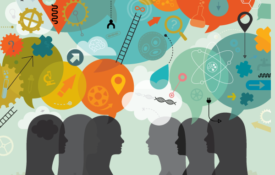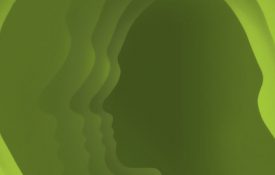-

Despite Stronger Vetting and Sampling, Certain Psychological Research Results Elude Replication
A new series of replication attempts that accounted for possible earlier shortcomings also fell short, suggesting other variables are thwarting replication in certain cases.
-

The Story Behind “The Future of Women in Psychological Science”
In September 2020, APS published the first-ever gender parity review of psychological science: “The Future of Women in Psychological Science.” The story behind this study, as told by some of the authors, is a compelling examination of personal experiences and observations.
-
What to Do When You Can’t Catch a Break
We’ve all had one of those weeks: Your car breaks down, you get in trouble at work, you spill wine on an expensive dress, a family member gets sick. Sometimes those weeks turn into months or even years, and you begin to wonder if the universe is out to get you. This year has been one of those weeks on a giant scale. “The sad truth is that the pandemic and all of the upheaval it’s caused is nothing compared to what’s going to be happening in the next decade in terms of weather events,” said Sheldon Solomon, a researcher and social psychologist. ...
-

New Content from Advances in Methods and Practices in Psychological Science
A sample of new replication studies of previous replication studies that had not obtained the original effects.
-

Careers Outside of Academia: How to Land and Navigate
Academia is only one option for a career as a psychological scientist. The key to finding a fulfilling career in a field such as technology, business, or a nonprofit? Identify your passions and use them
-
This Thanksgiving, More Than Any Other, Gratitude is Precious – but Warm Feelings Are Only the First Step To Living Well.
... On surveys, Canadians report feeling more stress and anxiety, but also more gratitude. We have made an art of it – literally – with the thank you signs for health care workers now fading in front windows. Gratitude is to be encouraged, according to countless self-help books and wellness blogs, like regular hand-washing and physical distancing. A regular dose, we are told, will help us sleep better, heal faster, feel more optimistic, make friends more easily, earn promotions more quickly – it’s the near-miracle cure for the anxiety and despair that ails us. ...

